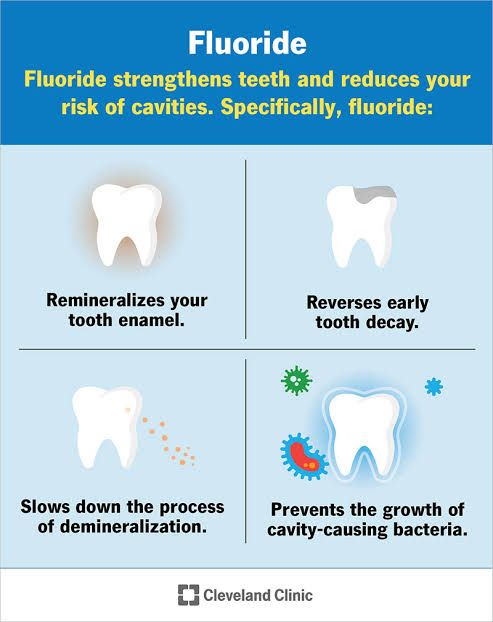Flourides in dental decay
Fluoride plays a crucial role in preventing dental decay and promoting oral health. It works in several ways to protect teeth from cavities: Remineralization: Fluoride helps to remineralize tooth enamel that has been demineralized by acids produced by bacteria in the mouth. This strengthens the enamel and makes it more resistant to future decay. Inhibiting Bacterial Growth: Fluoride can inhibit the growth of bacteria in the mouth, particularly those that contribute to the formation of acids that cause tooth decay.
3/9/20251 min read


Flourides in dental decay
Fluoride plays a crucial role in preventing dental decay and promoting oral health. It works in several ways to protect teeth from cavities:
Remineralization: Fluoride helps to remineralize tooth enamel that has been demineralized by acids produced by bacteria in the mouth. This strengthens the enamel and makes it more resistant to future decay.
Inhibiting Bacterial Growth: Fluoride can inhibit the growth of bacteria in the mouth, particularly those that contribute to the formation of acids that cause tooth decay.
Reducing Acid Production: Fluoride reduces the ability of bacteria to produce acids, which are responsible for breaking down tooth enamel and leading to cavities.
Strengthening Enamel: Fluoride helps make enamel more resistant to acid attack by incorporating into the enamel structure, making it harder and more durable.
Fluoride is typically applied in various forms, such as toothpaste, mouth rinses, and professionally applied treatments, and is also found in some water supplies to further reduce the risk of dental decay in populations.
Regular use of fluoride can significantly lower the risk of cavities, especially when combined with proper oral hygiene practices like brushing and flossing.
© 2025. All rights reserved. Beaudent Denatal Clinic | Best Dentist in Baner | Dental Clinic in Baner| Root Canal Specialist in Baner | Dental Implants in Baner Pune


Address
F-18, First Floor, Abil Imperial Atria, Rohan Seher Ln, Baner, Pune, Maharashtra 411045
Timings
Mon to Sat : 9 AM - 8 PM
Sunday : 9 AM - 8 PM
Social Links
